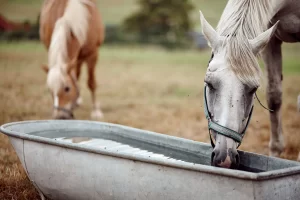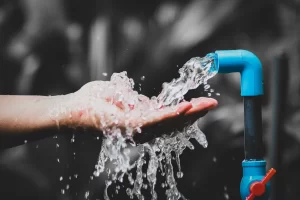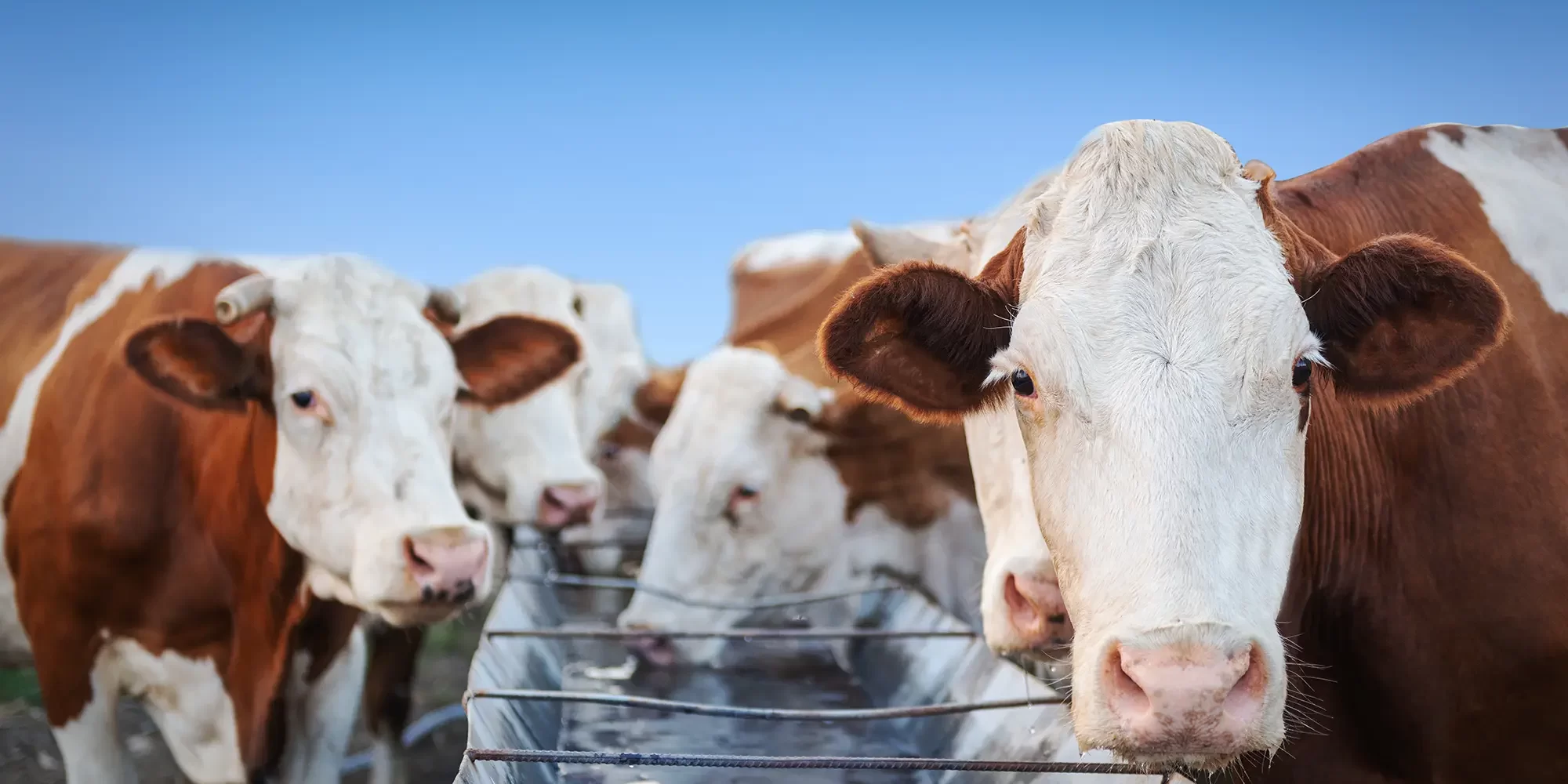Clean drinking water is fundamental to the health and productivity of livestock, including cattle, horses, poultry, and swine.
Water is essential for hydration, digestion, and nutrient absorption, directly impacting animal health, growth rates, and yield.
Providing uncontaminated water helps ensure that livestock remain healthy and productive, supporting the overall success of farming operations.
The Risks of Contaminated Water to Livestock
 Contaminated drinking water can pose severe risks to livestock, leading to a variety of health issues that compromise their well-being and productivity. Common contaminants include pathogens, toxins, and heavy metals, each with specific harmful effects:
Contaminated drinking water can pose severe risks to livestock, leading to a variety of health issues that compromise their well-being and productivity. Common contaminants include pathogens, toxins, and heavy metals, each with specific harmful effects:
- Pathogens: Bacteria, viruses, and parasites found in water can cause diseases such as diarrhoea, infections, and even death. For example, E. coli and Salmonella can severely affect all types of livestock, leading to outbreaks that can devastate entire herds or flocks.
- Toxins: Agricultural runoff can introduce pesticides and herbicides into water sources, while industrial processes might add chemicals and pollutants. These substances can cause acute poisoning or long-term health issues, such as organ damage and reproductive problems.
- Heavy Metals: Metals like arsenic, lead, and mercury, when present in drinking water, can accumulate in an animal’s body over time, leading to toxic effects, impaired growth, and reduced immune function.
The presence of these contaminants not only affects the health of the animals but also the safety of the products derived from them, such as meat, milk, and eggs, posing a public health risk.
Chlorine Dioxide: A Solution for Clean Livestock Drinking Water
 To mitigate these risks, it is crucial to treat livestock drinking water effectively. Chlorine Dioxide (ClO2) has emerged as a superior option for ensuring the safety and cleanliness of water used in livestock farming. Here’s how ClO2 can help:
To mitigate these risks, it is crucial to treat livestock drinking water effectively. Chlorine Dioxide (ClO2) has emerged as a superior option for ensuring the safety and cleanliness of water used in livestock farming. Here’s how ClO2 can help:
- Broad-Spectrum Disinfectant: Chlorine Dioxide is highly effective against a wide range of pathogens, including bacteria, viruses, and protozoa. Unlike chlorine, ClO2 is effective in various conditions and does not form harmful by-products like trihalomethanes (THMs), which are linked with cancer.
- Removal of Toxins and Tastes: ClO2 not only purifies water from microbial threats but also helps eliminate unpleasant odours and flavours that can deter animals from drinking enough water, thereby maintaining proper hydration.
- Prevention of Biofilm Formation: ClO2 prevents the formation of biofilms in water systems — a common source of microbial contamination. Keeping water lines clean ensures that animals have access to uncontaminated water consistently.
Scotmas’s Expertise in Water Treatment for Livestock
Scotmas provides advanced ClO2 solutions tailored to the needs of livestock producers. Our systems deliver precise doses of ClO2, ensuring that water supplies are consistently safe and clean without compromising animal health or environmental standards.
Safeguarding Livestock with Clean Water
Ensuring that livestock have access to clean drinking water is vital for their health and the safety of animal products. By adopting Chlorine Dioxide water treatment solutions from Scotmas, farmers can protect their animals from the dangers of contaminated water, enhancing productivity and ensuring the sustainability of their agricultural practices. Contact us for more information on how Scotmas’s Chlorine Dioxide solutions can benefit your livestock water treatment efforts.






